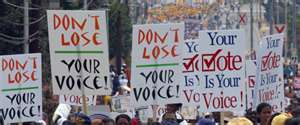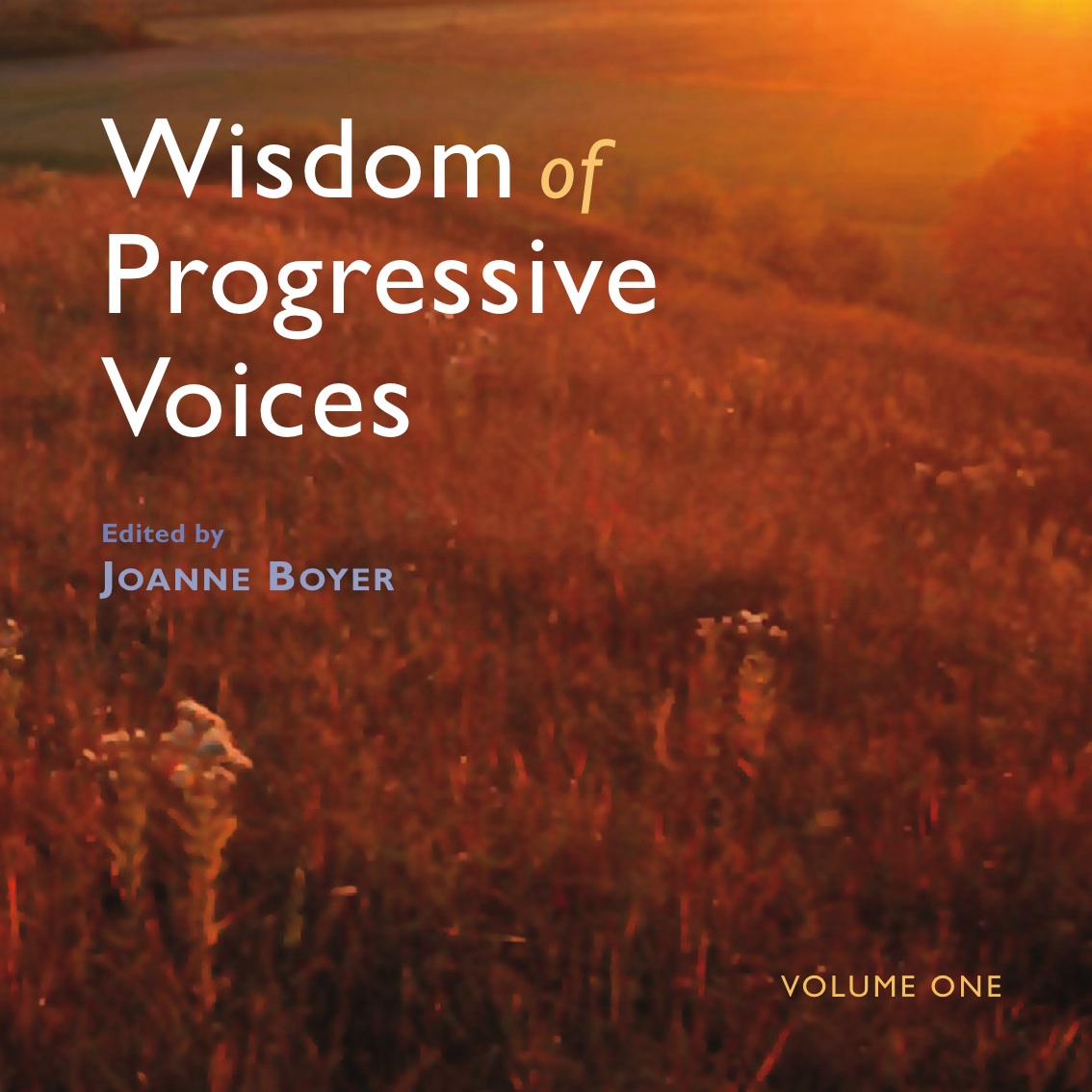One of the constant replies I receive when talking to people about the so-called Voter ID laws now running rampant in our country is, “I just don’t believe people can’t get ID.” My instant response usually goes, “No, it is not as easy as you think and not all people’s lives are just like yours.”
So often today we get caught in our insular bubbles that keep us from interacting with people whose lives are different from ours. I mean real interaction as in “walk a mile in my shoes.”
So I decided to check in with my youngest daughter, who spent her first year after college graduation with the Jesuit Volunteer Corps-Northwest working in a day drop-in shelter for people experiencing homelessness in Tacoma, Washington. Here’s her account of just how hard it is for people to get ID.
In Tacoma, we budgeted for ten checks per month to help people pay to get IDs on a first come, first serve basis. On the first day of every month, people would be lined up outside waiting for us to open the doors, and then once inside lined up waiting at our office window, where usually the first ten people in line were there to get an ID check. We would almost never have any checks left on the second day of the month. We also (when the budget permitted) gave out a bus ticket with each check, so that people would have a way to get to the appropriate office where they needed to go for their ID. People would often call us in the middle of the month after hearing that we helped people get IDs, and we would explain that we give out ten checks per month, and if you wanted a chance at getting one you needed to be here at exactly the time we open on the first day of the month.
Here’s why it’s not realistic to say, “I don’t believe people would have a hard time getting an ID.” I’ll use myself as a hypothetical situation. I’m sitting here (since you asked about this) and thought, what would I do if I needed to get an ID? (Which I actually do, still, since I don’t have state ID after moving to Illinois)
The first thing I did was look up on the Internet where the closest DMV to me is. (We can bracket the fact that I am already sitting at a computer with easy Internet access. In Tacoma, you needed a library card to use the computers at the public library. To get my library card in Illinois, I had to present utility bills as proof of address, since I didn’t have state-issued ID. So, I possibly need an ID, and an address, to access a computer to look up on the Internet how to get an ID.)
I found out that there really aren’t any DMV offices close to where I live – the closest one is downtown, which is still almost 3 miles away from where I live. Now, I am going to be fine because I happen to work close to where the office is and I have the luxury of being able to step out of the office over the lunch hour and head over there. But for those “not just like” me, they would first need to be able to get the 3 miles to the office. I have a transportation card paid for by my work place (and a bike, and access to people with cars, and enough money to pay for a cab). Others would need to come up with $4.50 in cash to be able to take public transportation to and from the office (or else pay even more for a cab, or have a friend with a car, or own a bike, or, walk. It takes about an hour to walk from where I live to downtown).
But, when I was looking up the nearest location of the DMV, I was also checking to see when it was open. And the hours of the nearest location to me are: 8 am – 5 pm Monday – Friday, closed on Saturday and Sunday. Do you work a full-time job from 8 am – 5 pm? (Or multiple part time jobs? Or a night shift job, so that you’d rather be sleeping from 8-5?) One that might not allow you to travel to the closest office (which could be miles away) over a lunch break? (This is assuming that you have one, and your job isn’t in jeopardy if you are five minutes late to get back.) What exactly are you going to do about this? What if you have kids that you need to get home to, pick up from school, drop off at school, etc.?
I’m also living in a major city of almost 3 million people. This means there are multiple office locations where I could go to, a solid public transportation system, etc. Poverty and homelessness are realities in the suburbs and in rural areas as well, which opens up all sorts of other issues in terms of access, transportation, etc. when you aren’t talking about living in a big city. Minnesota voter ID laws would affect the whole state, not just Minneapolis and St. Paul and Rochester and Duluth.
Let’s also not forget that usually to get an ID, you need some other form of ID. A common situation is as follows: When someone tries to get an ID card, they will be asked to supply secondary proof of identity like a birth certificate. Don’t have your birth certificate? Off you get sent to go get it. What if you only had enough money for one bus ride? How are you going to get to this other office to track down your birth certificate? When are you going to do it, if you’re still working during regular business hours? If you do finally make it to the office where you can get your birth certificate, you can bet you’ll be asked to show some identification, which is the whole reason why you are there in the first place.
(I remember in Tacoma a man came in who had just lost everything in a fire and was in this exact situation – all of his forms of ID had burned in the fire and he couldn’t get one without the other.) When I do go get my Illinois ID I’m going to need to bring with me pretty much everything short of the name of my first born child: I’ll need my passport, social security card, copy of my lease or some utility bills, pay stub, bank statement, etc. What if you don’t have a job? Or a bank account? What if you aren’t paying utility bills because you don’t have your own place to live?
And then you still have pay for the ID. In Tacoma, this could cost anywhere from $15 to $50, depending on what was needed.
The moral of this story is yes: Not everyone is like you. Not everyone has internet access, a car, a bus pass, disposal income for public transportation, flexible job hours, friends or family members to ask for help, an address, or a bank account. But don’t all these people still have the right to vote?


